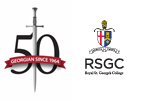COURSE |
|
ICS4U |
 |
| NAME |
|
Computer Science Grade 12 |
TYPE |
|
University/College |
DATE |
|
2014 09 03 |
DOCUMENTS |
|
Computer
Studies,
The Ontario Curriculum Grades 10 to 12, 2008 |
|
|
Growing Success: Assessment, Evaluation and Reporting in Ontario Schools,
2010 |
INSTRUCTOR |
|
C. D'Arcy |
CREDIT |
|
1.0 |
HOURS |
|
110 |
PREREQUISITE |
|
ICS3U |
MATURITY |
|
5 (0-new course; 5-established) |
|
OVERVIEW |
|
This course enables students to further develop knowledge
and skills in computer science. Students will use modular design principles
to create complex and fully documented
programs, according to industry standards. Student teams will manage a large
software development project, from planning through to project review. Students
will also analyse algorithms for effectiveness. They will investigate ethical
issues in computing
and further explore environmental issues, emerging technologies, areas of research
in computer science, and careers in the field. Graduates of ICS3U deepen their software experience through their study of recursion, data structures and algorithms. In the process, student will incorporate use modular design principles and patterns to create complex and fully documented programs. A special emphasis is placed on mathematics and algorithms relating to advanced fractal geometry and recursive descent parsing. |
 |
| TEXT |
|
Maria Litvin, Phillips Academy; Gary Litvin, Java Methods, 2nd Ed. |
 |
| STRATEGIES |
|
Students learn best when they are engaged in learning in
a variety of ways. Computer science courses lend themselves to a wide range
of approaches in that they require students to discuss issues, solve problems,
plan solutions, participate in the development of solutions, conduct research,
think critically, and work cooperatively. Students engaged in active learning
tend to retain knowledge longer and develop and integrate key skills more
completely. Classes are
used to provide detailed programming instruction modelling good program
design and coding practices. Scaffolding is often employed
in teaching computer studies - breaking down the tasks so students can
concentrate of specific, manageable objectivies as they work towards building
understanding and skills. |
 |
| EVALUATION |
|
70% Term: 55% Assignments / 15% Specialized Research Project
Assessment Categories:
Knowedge & Understanding/Thinking, Problem-Solving/Communication/Application: |
|
| |
|
30% Exam: Assessment of Learning (Exam Outline and Archive) |
|
| STRANDS |
|
Programming Concepts and Skills |
|
| |
|
Software Development |
|
| |
|
Computer Environments
and Systems |
|
| |
|
Topics in Computer Science: Canadian Council of Professional Engineers
Code of Ethics |
|



